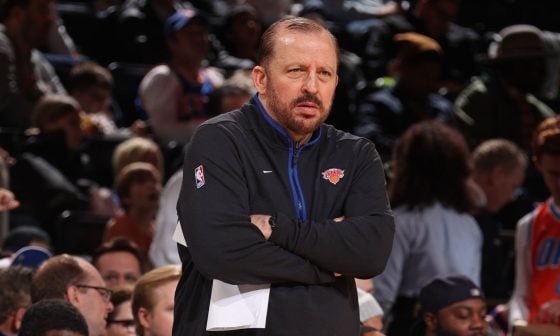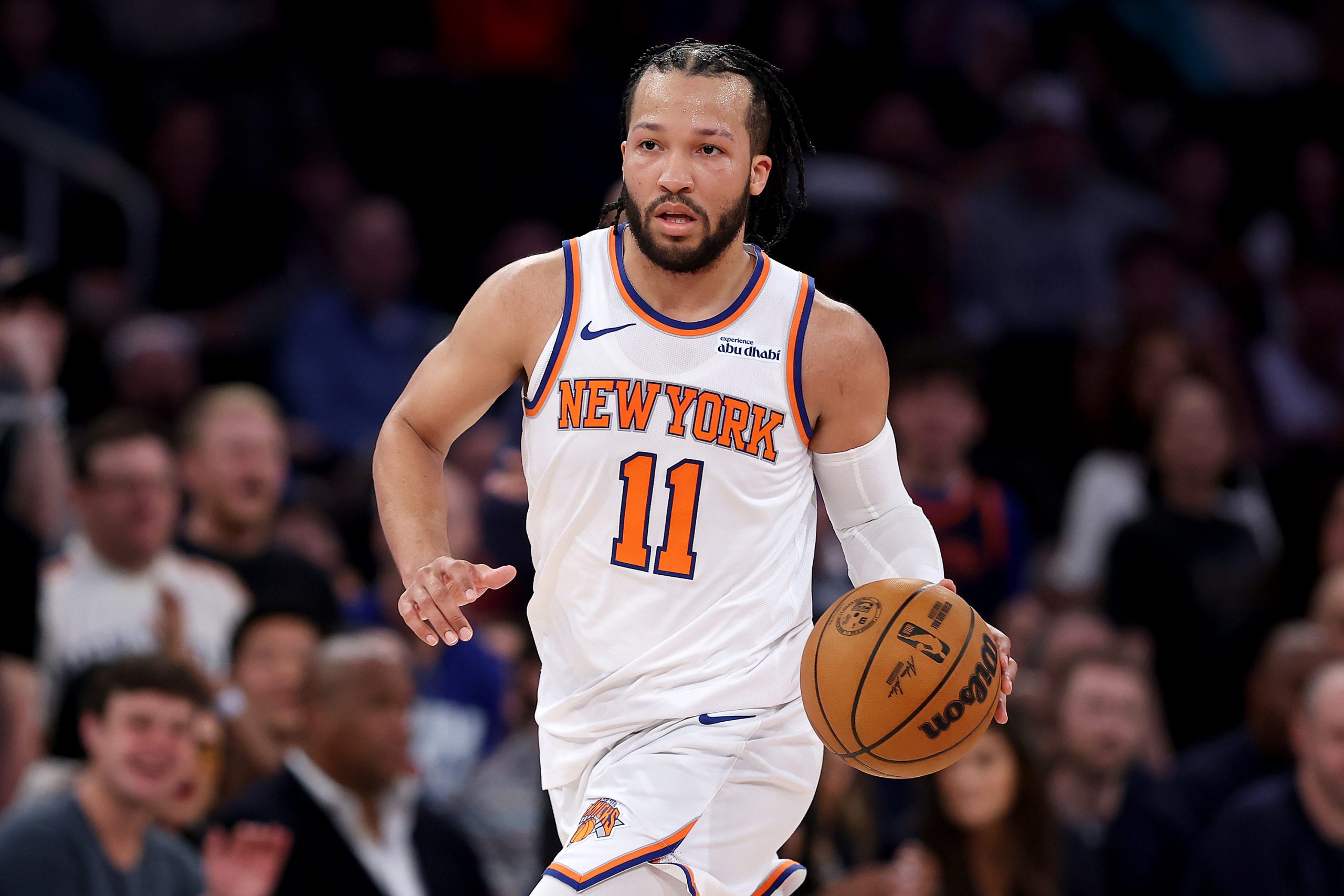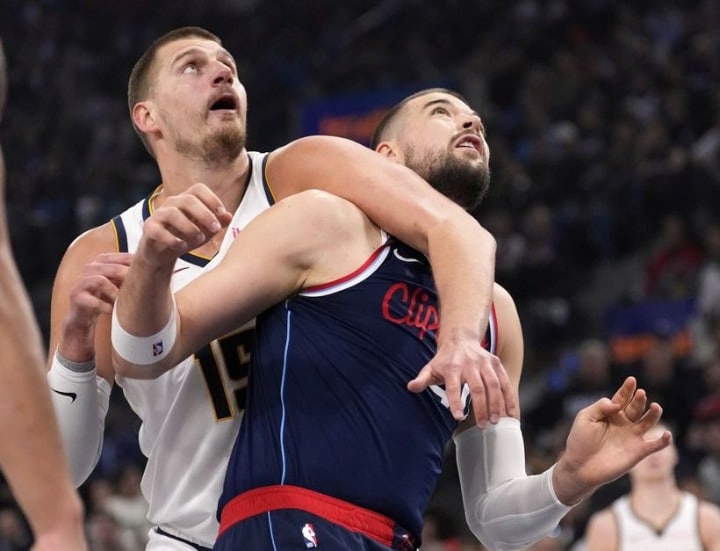I was about 15 years old when I first met Dorian Finney-Smith, so having the opportunity to interview him 15 years later, with him being a young vet in the NBA and me being a contributor for the illest basketball publication of all time, is a full-circle moment.
Every June, my former AAU team, Hoop Booth, would travel to Old Dominion University for their team camp to play a handful of games against some of the best high school and AAU programs in the area. And every year, there was one team I’d look forward to playing as a marker for where my game was: I.C. Norcom High School out of Portsmouth, Virginia. They were talented across the board, well-coached and flat-out tough. But Dorian (or Doe Doe as they called him) was the piece that really made this team go. Dorian was ahead of his time. This was back in 2010, so Kevin Durant had only been in the League for three years. It wasn’t yet the norm for hoopers taller than 6-7 to have the skill and fluidity of guards who played below the rim combined with the athleticism and length of true bigs.
Today, Dorian Finney-Smith is one of the most coveted role players in the L. During a time where the average career length is about 4 and a half years, it’s not an accident that Dorian is in his eighth NBA season with what seems like many more ahead of him. Sure, he was blessed with physical gifts but it’s his unwavering refusal to take these gifts for granted that got him here.
Dorian pulled up to the SLAM HQ in Queens and we sat down to discuss his upbringing, going undrafted, his outlook on fatherhood, which includes helping his own father get released from prison recently. He also opened up about the legacy he hopes to leave behind and his community service efforts.
This interview has been slightly edited for conciseness and clarity.
Curtis: Growing up in Portsmouth, it would have been so easy to adopt a small-town mentality; can you speak to the commitment you made at an early age to do something special?
Dorian Finney-Smith: Well, my older brother [Ben Finney] played as well, so I was able to watch his process. And his best friend, who’s like family to me, Vernon Macklin, was like the first person from my city to make it to the NBA and that was motivation for me. To be able to touch somebody who got drafted–to be able to have conversations with and see somebody who I know got drafted made me know it was possible. With him being highly ranked and being from my small city, that was all the motivation I really needed.
Curtis: I know you had a target on your back as a major athlete in a small trouble-ridden area. How did you keep on a narrow path and not fall victim to the peer pressures that plagued a lot of the Portsmouth youth?
DFS: My momma being on our ass [laughing]. But also, one of my older brothers was killed and my pops was in prison, so I had all the motivation I needed to know that I didn’t want to live that type of lifestyle. Everybody my brother grew up with who I would use to call the big bros was getting locked up. I realized by eighth or ninth grade that the life that rappers and everybody glorified was only gonna lead you to two places, either death or jail. They’d just fall into the system. I also had a best friend, Jeremy Canty, and his pops was a real stand up man who was good for me. His pops took me to all my workouts and stuff like that when my momma couldn’t. She had to work and she got five other kids, so she couldn’t get us to practice and stuff like that. I had a great community around me, man. I had a good support system. A lot of people wanted to see us win, wanted to see me win.
Curtis: Most highly coveted prospects like you choose to go the private school or prep school route. What went into your decision to stay home and play for Norcom High School, your local public school?
DFS: I wanted my friends to get looks, too. I wanted the college coaches to come see them when they came to our practices. I wanted them to get some notoriety. I just wanted everybody to eat, that’s just the type of person I am. I always said, ‘if you’re good enough, they’re gonna find you.’ And back then it was different; we wanted to play public school. And we still got the opportunities to play against the James McAdoos and the Findlay Preps once we won our first state championship. I ain’t easily influenced, so it wasn’t like my mom and them were trying to get me out the city.
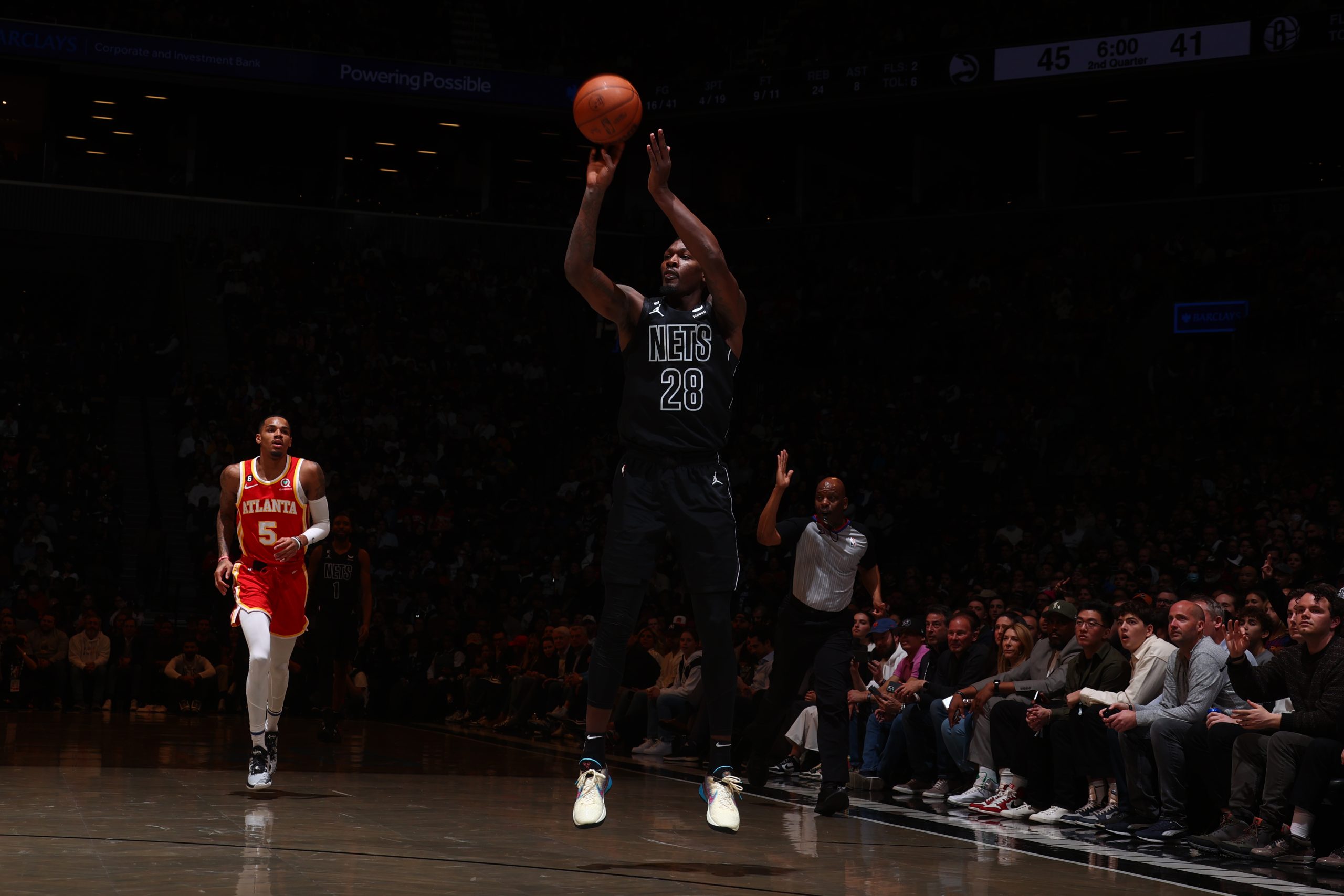
Curtis: After a steady and consistently improving college career that began at Virginia Tech and ultimately Florida, filled with honors like ACC All-Freshman Team, SEC Sixth Man of the Year and 2x Second-team All-SEC, you went undrafted in 2016. How would you say your upbringing and experiences prepared you for adversity and helped you stay the course to earn an opening day roster spot for the Dallas Mavericks after going undrafted?
DFS: My mom used to have this saying, ‘it don’t matter, we gonna always end up on top.’ That was the mentality I always had. I never really got the immediate results I wanted; I always had to work for it. Even in high school, I didn’t play my freshman year. My friends were playing, and I sat on the bench the whole year. I never pointed my fingers at nobody; I always looked in the mirror and worked on my game. That’s exactly what I did. I ain’t feel sorry for myself or nothing, I just started working. And I wanted them to feel my presence whenever I got on the court. I knew whatever [NBA] team I was going to, they weren’t gonna have me there to shoot all the balls. I knew playing defense was probably what was gonna get me on the court. I just wanted my energy to be felt as soon as I stepped on the court. So, when I got to training camp, I felt like I did that.
I didn’t even have the best summer league. I remember sitting in my locker just being appreciative like, ‘man, this might be my last day here.’ D-Will was just smirking at me like, ‘I don’t know rook, this might not.’ But I was just appreciative. C’mon, man, I’m from Portsmouth, Virginia and I got Dirk Nowitzki sitting beside me, bro.
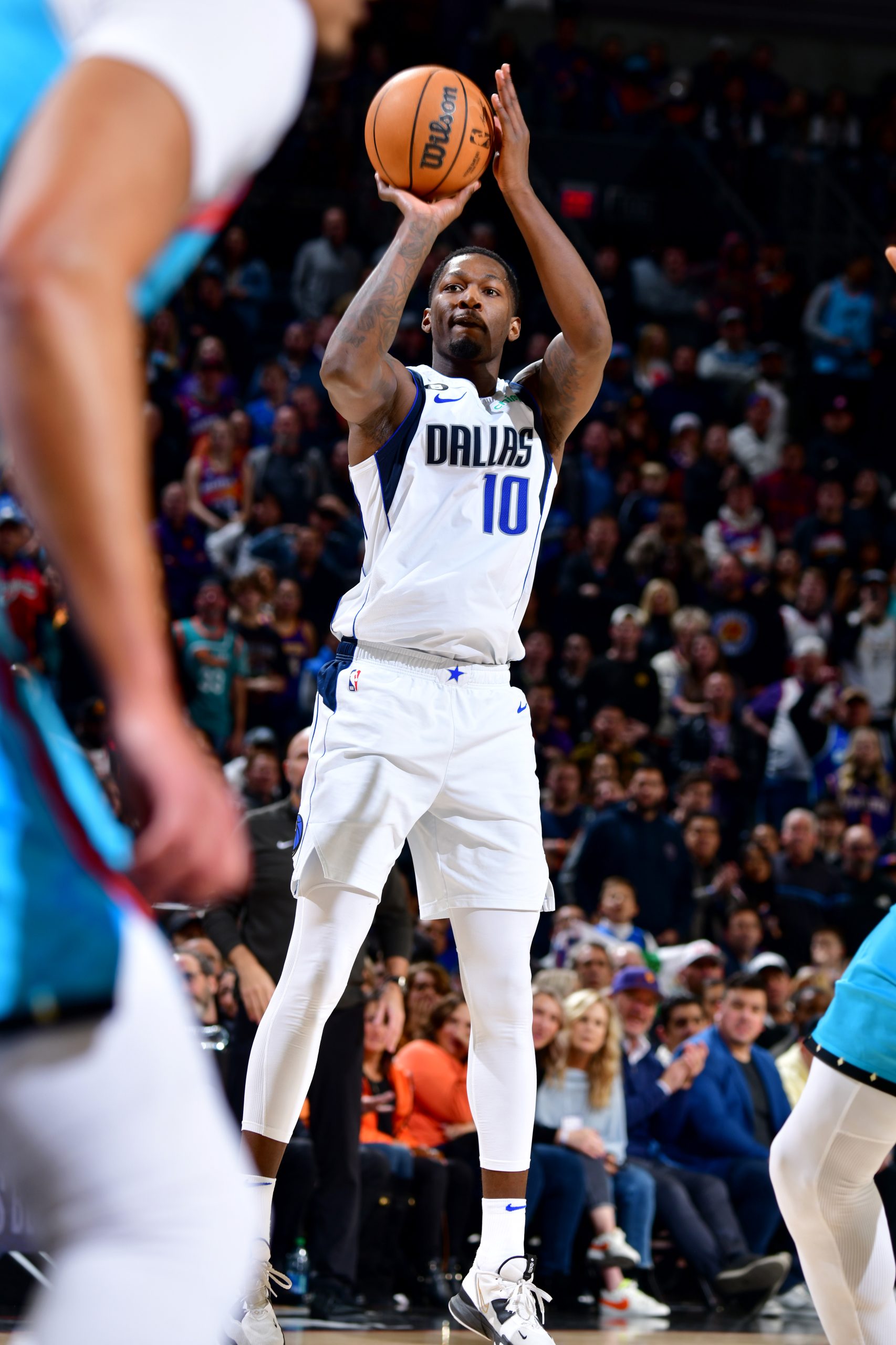
Curtis: Piggybacking off your decision to stay at Norcom in high school, you mentioned you wanting everybody to eat. Now, you’re doing that, literally, with your community service efforts. Can you speak to the inspiration to give back to your community and what that means to you, especially as a Black person coming from where you come from?
DFS: It means a lot to me, man. It wasn’t just my mom, it was the whole community who helped raise me. I grew up in an era when you may see somebody at the store and you’re doing something hard-headed, and they might say, ‘man, chill before I tell your momma.’ The community cared, especially when you’re doing something positive and they know you’re working hard to get out of that situation. They all encouraged me. If they saw me hanging with someone they even thought was a bad influence, they’d pull me to the side and tell me, ‘watch yourself when you’re around him.’ So I always felt like this was bigger than me, especially when I started looking back at it. Even my brother’s friends–when they used to do all the little hard-headed stuff, they’d be like, ‘Doe, stay home tonight.’ So, I just wanted to pay my dues, man. Because any one of those times they could’ve just said ‘come on,’ and that could’ve been it for me.
But again, my upbringing, too. My mom always gave back, even when we stayed in the projects. It’d be another house full of kids that we’d be passing and we’d be giving them hand-me-downs or vice versa. We were a little older and bigger so we would be giving away our clothes to other kids. My mom always had that family-type feel, you know. She’d feed the whole neighborhood–make a big pot of spaghetti and feed everybody, all of our friends. There’s six of us, so if everybody got two friends, it was a lot [laughing]. So, I just took after my mom. My first year doing my camp, I was on the training camp deal but to everybody else, it was like, ‘he’s on the team and he’s from Portsmouth.’
Curtis: This past holiday season, you got an early Christmas gift–your father was blessed to come home after doing almost 28 years in prison. Even though he was away, he was still a part of your life, so can you speak to your relationship with him?
DFS: When my brother passed, and when I had my first daughter, it made me want to build that relationship with him. Shout out to Coach D, Billy Donovan, who used to always push for me to have that relationship with him. During my redshirt year at Florida after I transferred there, Coach D and my mom thought it was best that I talk to someone about my brother and stuff. So working with them and talking about my life, we came up with the plan of trying to reconnect my relationship with my pops and staying consistent with it. That’s pretty much how it happened.
Curtis: Can you touch on the process of helping him get released?
DFS: When I got to the NBA, Jamahl Mosley, who coaches the Orlando Magic–we were talking and I told him about my dad’s situation and he was like, ‘man, you should hit up Cube (Mark Cuban) and see if he knows someone who could help you with that.’ After I got my first deal (with Dallas), I ended up saying something because I knew I was gonna be there for another three years. Cube got me in contact with Jason Lutin–shout out to him. And Lutin just attacked this thing like a full-court press, man. He dove into it. He hit up his contacts–Jerry Kilgore, shout out to him, too. And once they read the case, they said he should’ve been got out, or at least on his way out. I was able to talk to the parole board last year, probably, like, a week before the trade [to Brooklyn]. It was a lot going on, it was a dope experience for it all to happen and come to fruition. He got here, and the first probably 10 minutes was just a staring contest, just me looking at him, checking him out. My kids are all over him. And that’s who he really wanted to see. Not saying he didn’t want to holla at me, it’s just he wanted to be with his grandkids.
Curtis: Has your relationship with your parents shifted your mindset of fatherhood?
DFS: Of course. Like I said, it was six of us and four of us played Division I basketball. She used to be at three games in one day. She’d go from my game, to my sister’s game, to Old Dominion to see Ben. She’d leave at halftime; but you’re going to hear her voice, you’re going to see her and she’s gonna wave to you when she leaves, you know what I’m saying? She used to try her best, man. That’s who the real GOAT is. My mom was very determined. She didn’t let us make any excuses. Anything that happened at home–once we on the court, we on the court. She helped us with that mentality, and I still use it today. You know, I just never wanted my kids to grow up like I did. I want them to be able to say I was there.
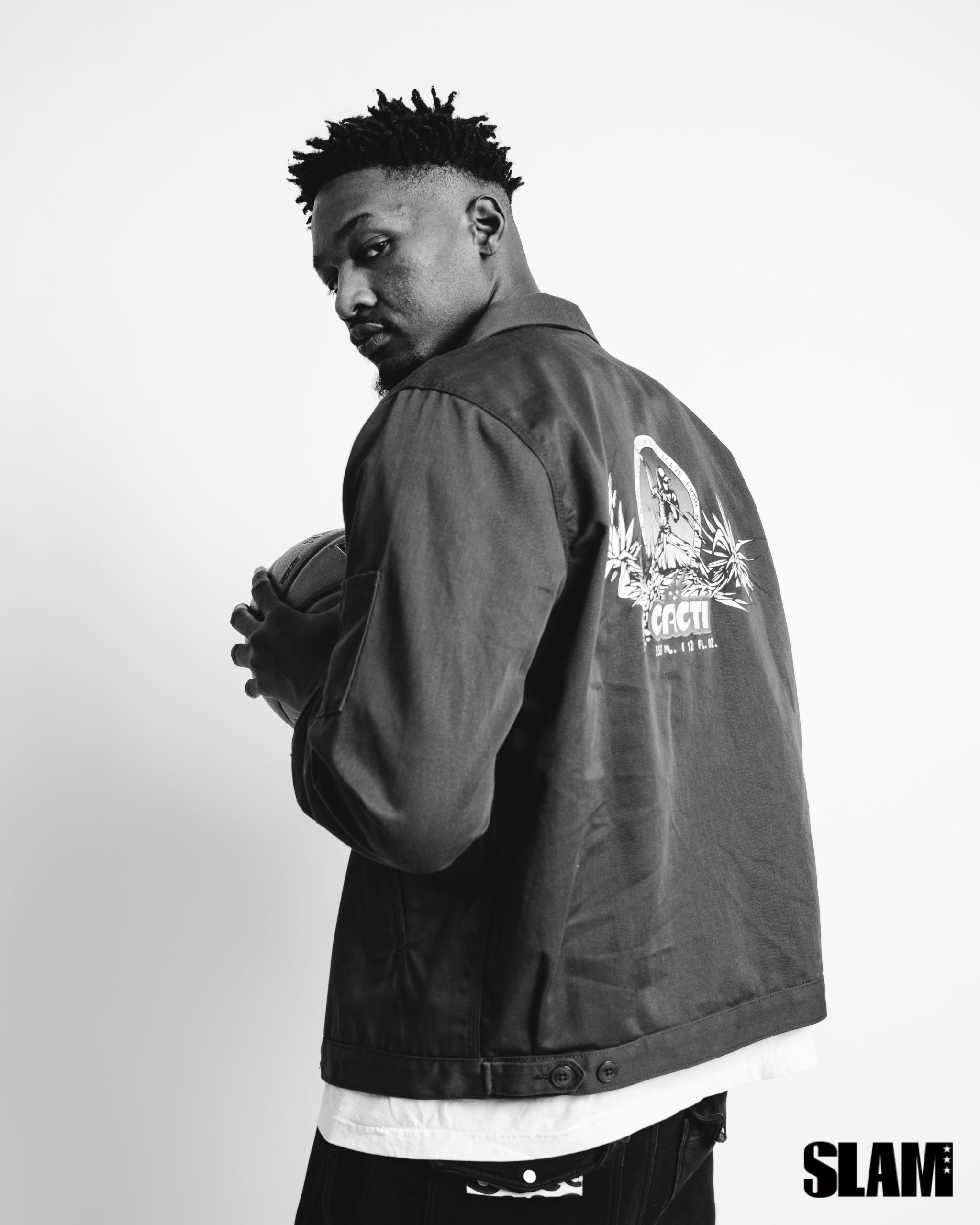
Curtis: When all is said and done, how do you want to be remembered–by the basketball community, by your kids, by Portsmouth?
DFS: I always say God-fearing family fam, but I’m going to elaborate on that a little more. I just want my kids to know their dad loves them and I want them to appreciate life. I try to lead by example because any day this shit can be taken away, at any time. I learned that at an early age with my brother, and hopefully it don’t gotta be to that extent with them. I always try to tell them, ‘get what you can get out of each day.’ As far as the community, I just want to do my part, man. I want them to know that I care, I care about my community, I care about the generation after me. And like I said, it’s bigger than me. If I could change the mindset of one kid each year, then I did my job. I just try to be who I would’ve needed when I was young, or who more of my friends could’ve used when they were younger.
Action photos via Getty Images. Portraits by Marcus Stevens


